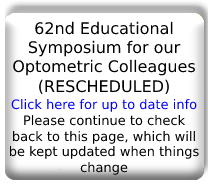Northern New Jersey Eye Institute on ZocDoc
Retinal Disease Treatment
The retina is a thin sheet of nerve tissue in the back of the eye where light rays are focused and transmitted to the brain. Basically, the retina behaves like film in a camera and the images on this “film” are developed in the brain. The retina is an essential cog in the machine that turns information from the outside world into the useful images we depend on every day.
Retinal diseases affect human sight in a wide variety of ways and degrees of severity. Some are common and easy to diagnose, and others are difficult to discover and require a more comprehensive retinal disease treatment plan. Symptoms can vary from specks floating in their sightlines to blurry vision to blindness. The following are few examples of retinal complications:
- Diabetic Retinopathy. A common complication of diabetes that causes the blood vessels in the retina to swell and leak fluid. Early stages progress without symptoms, but as the disease develops abnormal blood vessels build up on the retina and can cause cloudy vision or blindness. Abnormal fibrous tissue can develop in later stages, causing retinal detachment and dramatic vision loss. Early diagnosis of diabetes and regular treatment is crucial to preventing diabetic retinopathy from effecting vision.
- Eye Floaters. Dark specs, threads, clumps or spots in a person’s line of vision. Eye floaters are in and of themselves harmless. They occur when tiny clumps form in the vitreous humour, the jelly-like substance in the eyeball. Floaters come in many shapes and sizes, often when looking at a light colored area, like the sky. When floaters start to appear on a regular basis, it’s a good idea to visit with an eye care professional. Eye floaters could signal damage to the retina, and in the worst case scenario a detached retina requires surgery to fix.
- Retinal Detachment. When the retina separates itself from the back of the eye. If left untreated, the condition will deteriorate to the point that the retina will no longer be able to send information to the brain, and blindness results. Older people are particularly at risk and some level of retinal detachment is quite common. Symptoms include eye floaters, blurred vision, sparks, dark spots, and loss of vision. The most common way to treat a detached retina is through laser surgery and the rate of recovery is high, as 9 out of 10 retinas are successfully reattached.
- Retinoschisis. A disease that occurs when the retina splits into two layers. It can result in loss of vision, flashes of lights, and floaters. Retinoschisis is a degenerative condition most commonly found in individuals over the age of forty. Retinoschisis can be spotted during a routine eye examination and often is a benign condition that simply needs to be monitored. If the disease progresses, symptoms can be more severe and signal a detached retina.
Anyone suffering from a symptom that could signal retinal disease should see an eye care professional immediately. At Northern New Jersey Eye Institute, we’re equipped to diagnose and treat medical retinal disease. NNJEI has the full complement of physicians that will get a treatment plan that works for you. Early diagnosis is key to maintaining healthy eyes, so make an appointment to come to NNJEI today!

"Dr. Crane is one of less than 100 doctors in the United States to be able to bring this new technology to his patients."
"Dr. Crane is one of less than 100 doctors in the world who have been approved to participate in the iDose FDA trial"
iDose exchange
"Dr. Crane is one of less than 15 doctors in the United States to perform this procedure for his patients."
"Dr. Crane is one of less than 15 doctors in the world who were approved to participate in the iDose exchange FDA trial"
Infinite
"Dr. Crane is one of less than 15 doctors in the United States who were able to bring this new technology to his patients."
"Dr. Crane is one of less than 15 doctors who were approved to participate in the iStent Infinite FDA trial"
General
Eye Injuries From Paintball Guns, Air Guns and Other Projectile Toys
FDA issues warning for contaminated eye drops that can cause infection.
"Dr. Crane and Glaukos have a long history of working together on several medical device and pharmaceutical studies. He has been able to offer these technologies to his patients and the products from these studies have progressed to help treat hundreds of thousands of patients in need."
Employment Opportunity: Optometrist in Essex, Morris, and Union Counties
Dr. Crane Top Doctor 2019
Congratulations to Dr. Crane for being the 2nd surgeon in the United States to perform a new treatment for Glaucoma. We hope this treatment will bring further advances in the care of our glaucoma.
ASCRS Thanks Dr. Crane for Volunteer Work
Dr. Spier Named to OSN's Premier Surgeon 300
Dr. Spier: Weekend Comedian
Dionne Warwick on Dropless Surgery [VIDEO] (Surgery Performed by Dr. Spier)
Dr. Crane and Staff congratulate their patient Dr. William Scaife
Dr. Crane named to the ASCRS Council of 100
 Dr Crane meets one of his favorite Sharks, Daymond John, at a book signing!
Dr Crane meets one of his favorite Sharks, Daymond John, at a book signing!














